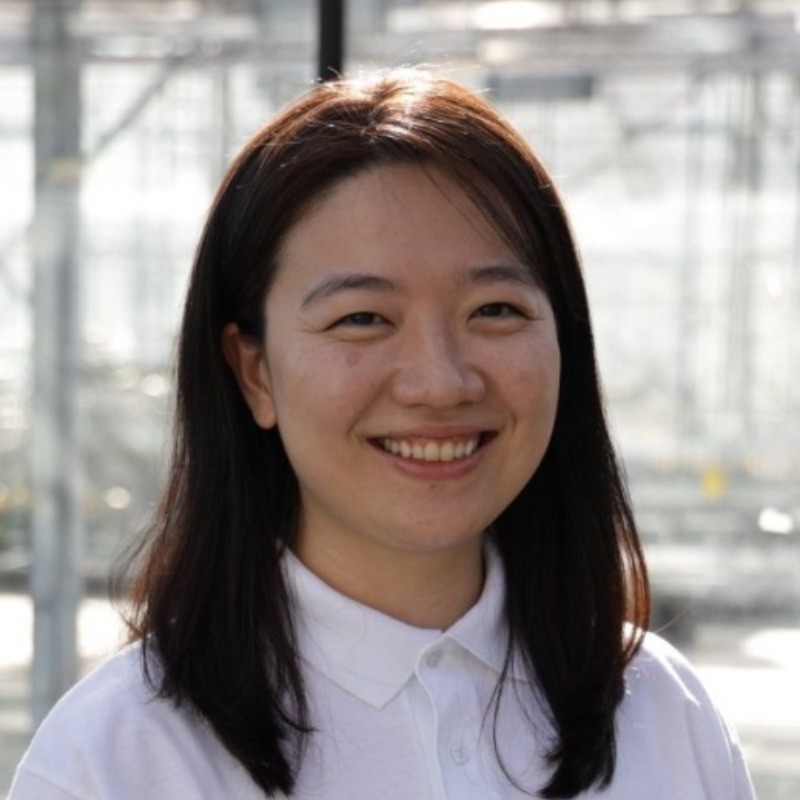The Boston-based AI and automation startup, Zordi, runs two greenhouses, one in western New York and another in New Jersey. They are both small with a combined area of less than one acre. What's distinctive about them are the robotic devices and sensors that feed, water, and monitor hundreds of strawberry plants.
Zordi’s system uses autonomous environmental control along with robots and AI to care for the plants as well, if not better than, a human staff. It's not that there aren’t people on site, but they monitor the machines as much as they do the strawberries.
The company is the brainchild of co-founders Gilwoo Lee and Casey Call. Lee earned a Ph.D. in 2020 in AI and robotics from the University of Washington. Call, an agronomist who has worked for Plenty and Granular, comes from a multi-generation family farm in New York. Within months of completing her doctorate, Lee received $20 million from famed Khosla Ventures for the startup, and now their branded strawberries are already being sold in a handful of stores.
 Gilwoo Lee, Zordi
Gilwoo Lee, ZordiZordi is still in the trial stage. Lee says for financial sustainability, their automated systems will have to ramp up to care for greenhouses that are at least two acres in size by the end of this year. Unlike many ag companies, Zordi isn’t looking to license its tech to other growers. The founders want to be a vertically integrated grower of greenhouse produce providing the food under their own label.
“What we focus on is how do we have the AI make the day-to-day decisions beyond what an average grower can do in pest and disease management to maximize harvest,” said Lee. “The AI outputs what to do day-to-day, like a doctor for the greenhouse.”
In this phase of development, Lee said the company is finding out the full capabilities of AI-led robotics to determine the size of operation needed to actually reduce labor and other costs to make a profit.
Strawberries were chosen as the initial crop because of their general popularity in stores, particularly year-round, according to Lee. Also, if robotics can handle relatively delicate strawberries, the company should be able to tackle just about anything else.
“Strawberries are more exciting than, say, cucumbers,” says Lee, “but snacking cucumbers are next in line.”
 Casey Call, Zordi
Casey Call, ZordiIn determining what she wanted to do prior to graduation, Lee specifically wanted to help find solutions that provided some climate resiliency and sustainability. “Sustainability will be the key for us for the next 20-30 years,” she says.
It’s easy to be “in the know” about what’s happening in Washington, D.C. Sign up for a FREE month of Agri-Pulse news! Simply click here.
On the other side of the country in California, Ben Alfi, an Israeli by birth, wanted to do work with technology that could reduce farming labor and input costs. The result was Bluewhite, a Fresno-based company that combines hardware and software to outfit tractors and other implements to run autonomously while monitoring the crop and soil conditions.
To date, Bluewhite has outfitted 20 different tractors and implements using their hardware and software. The company has geared its products, thus far, to the specialty markets that proliferate in California and Israel, such as produce, nuts, and vineyards.
Alfi, who was a combat pilot in the Israeli Air Force and Head of their Unmanned Systems R&D Programs, founded Bluewhite in 2017.
“Whether you have green or blue or orange tractors, we can transform them to be autonomous,” said Alfi. “Using two people over seven hours we can transform the tractor.”
Along the way, this automation allows the collection of even more data as well as traceability of crops. “This will increase safety for consumers but also for workers by keeping them away from chemicals being sprayed,” said Alfi.
In 2023, machinery with Bluewhite’s autonomous package worked on 150,000 acres for 50,000 hours.
Transparency with this technology between government, machinery makers, and companies like Bluewhite could be the key for reducing farming costs while increasing production. Alfi believes grocery costs could double by 2035 unless growing costs are reduced.
“Time to market is important,” he says. “Bluewhite is bringing time to (equipment manufacturers) to develop their systems.” While Alfi sees their technology helping save on labor costs, he thinks by 2028 AI and autonomous machinery will really make a difference in chemical and hardware costs.
Bluewhite and Zordi are only a couple of an estimated 200 agricultural related AI startups in the U.S. The hope is that AI with the use of computer vision that “sees” the crop growing can reduce the estimated 40% of the world’s crops that are destroyed by pests each year. Similarly, considerable energy is wasted for crop production if the crop never makes it to market.
Surveys have found that more than 80% of farmers use some type of AI or machine learning in their operation. Agriculture now uses technologies that embed AI, such as drones or steering assisted tractors, and pesticide recommendations.
At the Zordi greenhouses, Lee said they are constantly working to perfect the technologies that accomplish, among other things, the harvesting of delicate strawberries. A robot moves along a rail and takes multiple photos of each berry to determine if it is ready for harvest. That is one of five to six robots that might operate in a greenhouse, with others doing the spraying or sorting and packing.
“I wanted to use robots and machine learning and take that to an industry I would feel most passionate about,” said Lee. “And this is it.”
For more news, go to Agri-Pulse.com.

